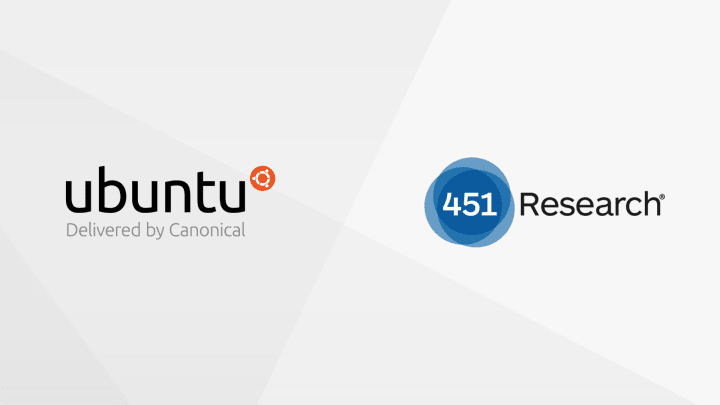Canonical
on 13 June 2018
451 Research benchmarks public and private infrastructure cost

Independent Report highlights the TCO of Canonical’s managed private cloud in a diverse multi-cloud strategy and enterprise infrastructure portfolio
451 Research’s latest report, ‘Busting the myth of private cloud economics ’, found that Canonical’s managed private OpenStack offering, BootStack, delivers private cloud with a TCO that matches public clouds. For multi-cloud operations, enterprise can benefit from a cost effective infrastructure by combining competitive public cloud services with Canonical’s managed private OpenStack cloud on-premise.
“The last few years has seen enterprises consume more and more public cloud services as they looked to grow revenue and increase productivity. These same companies are now finding themselves faced with spiralling costs as their cloud needs continue to evolve,” said Dr. Owen Rogers, Research Director, Digital Economics Unit, 451 Research. “As a result, over a third of enterprises are having to move data back to the private cloud but varying costs has created grey areas on the options available and it is perceived as an expensive alternative.”
451 Research analysis of the cost of public and private cloud infrastructure found that managed private cloud service providers like Canonical gain the benefits of scale, spreading the cost of full automation across multiple deployments. The widespread use of Ubuntu OpenStack and Canonical’s focus on automation across multiple customers make BootStack TCO-competitive with public cloud infrastructure.
Canonical’s BootStack managed private cloud was also found to be cheaper than 25 of the public cloud providers included in 451 Research’s Cloud Price Index. BootStack was found to offer significant total cost of ownership benefits over public cloud for sustained long-term compute, network and storage. Canonical’s focus on automation and model-driven operations is also evident in the cloud design and delivery process, committing to deploy an OpenStack private cloud in just two weeks with two engineers.
“Our OpenStack focus is efficiency, automation and reliability, to ensure that private cloud can be a viable part of the multi-cloud world,” said Mark Shuttleworth, CEO of Canonical. “Combining competitive public cloud with Canonical’s private cloud delivers the maximum efficiency over time, with the flexibility to run the right workload in the right place every day of the week.”
For further insight please read the full business impact brief from 451 Research, ‘Busting the myths of private cloud economics’, which can be downloaded here.



